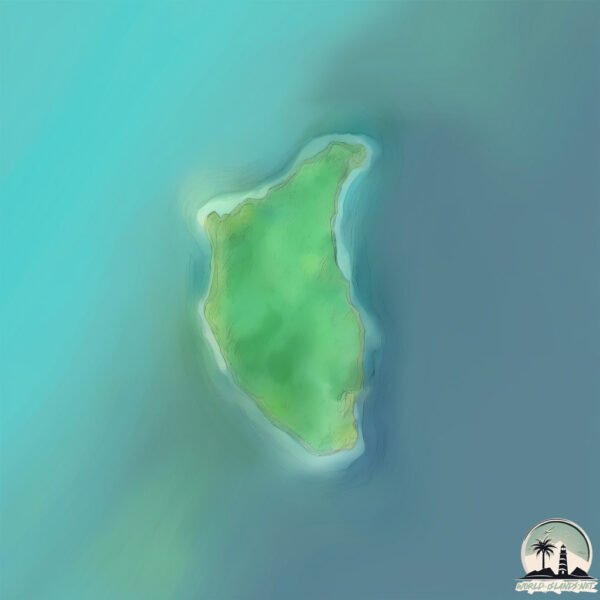Namu’a Island

Welcome to Namu’a Island, a Tropical island in the South Pacific Ocean, part of the majestic Pacific Ocean. This guide offers a comprehensive overview of what makes Namu’a Island unique – from its geography and climate to its population, infrastructure, and beyond. Dive into the details:
- Geography and Size: Explore the island’s size and location.
- Climate and Weather: Weather patterns and temperature.
- Topography and Nature: Uncover the natural wonders of the island.
- Infrastructure and Travelling: Insights on reaching, staying, and making the most of your visit.
- News and Headlines: Latest News.
Geography and size of Namu’a Island
Size: 0.184 km²
Coastline: 2 km
Ocean: Pacific Ocean
Sea: South Pacific Ocean
Continent: Oceania
Namu’a Island is a Tiny Island spanning 0.184 km² with a coastline of 2 km.
Archipel: Samoan Islands – The Samoan Islands, located in the central South Pacific Ocean, are part of the region of Polynesia. Known for their natural beauty, these islands have lush rainforests, waterfalls, and coral reefs. The Samoan culture is vibrant and deeply rooted in traditions and communal living. The archipelago consists of the independent nation of Samoa and the American Samoa, a territory of the United States.
Tectonic Plate: Pacific – The world’s largest tectonic plate, covering much of the Pacific Ocean, known for the Pacific Ring of Fire with extensive seismic and volcanic activity.
The geographic heart of the island is pinpointed at these coordinates:
Latitude: -14.0221109 / Longitude: -171.41527289
Climate and weather of Namu’a Island
Climate Zone: Tropical
Climate Details: Tropical Rainforest Climate
Temperature: Hot
Climate Characteristics: This climate is typified by heavy rainfall throughout the year, high humidity, and consistently high temperatures, leading to lush rainforests and rich biodiversity. Seasonal temperature variations are minimal.
Topography and nature of Namu’a Island
Timezone: UTC+13:00
Timezone places: Pacific/Enderbury
Max. Elevation: -2 m
Mean Elevation: -14 m
Vegetation: Evergreen Broadleaf Forest
Tree Coverage: 80%
The mean elevation is -14 m. Remarkably, this unique island barely emerges above the sea level, showcasing nature’s fascinating interplay with the ocean. The island is characterized by Plains: Flat, low-lying lands characterized by a maximum elevation of up to 200 meters. On islands, plains are typically coastal lowlands or central flat areas.
Dominating Vegetation: Evergreen Broadleaf Forest
Characterized by dense, lush canopies of broadleaf trees that retain their leaves year-round. These forests are typically found in tropical and subtropical regions and are known for their high biodiversity. Namu’a Island has a tree cover of 80 %.
Vegetation: 1 vegetation zones – Minimal Diversity Island
These islands exhibit the most basic level of ecological diversity, often characterized by a single dominant vegetation type. This could be due to extreme environmental conditions, limited land area, or significant human impact. They represent unique ecosystems where specific species have adapted to thrive in these singular environments.
Infrastructure and Travelling to Namu’a Island
Does the island have a public airport? no.
There is no public and scheduled airport on Namu’a Island. The nearest airport is Faleolo International Airport, located 69 km away.
Does the island have a major port? no.
There are no major ports on Namu’a Island. The closest major port is APIA, approximately 45 km away.
The mean population of Namu’a Island is 96 per km². Namu’a Island is Gently Populated. The island belongs to Samoa.
Continuing your journey, Upolu is the next notable island, situated merely km away.
Viewing of Namu'a Island (Samoa)



Samoa is classified as Least developed region: Countries that exhibit the lowest indicators of socioeconomic development, with the lowest Human Development Index ratings. The level of income is Lower middle income.
News – Latest Updates and Headlines from Namu’a Island
Stay informed with the most recent news and important headlines from Namu’a Island. Here’s a roundup of the latest developments.
Please note: The data used here has been primarily extracted from satellite readings. Deviations from exact values may occur, particularly regarding the height of elevations and population density. Land area and coastline measurements refer to average values at mean high tide.
